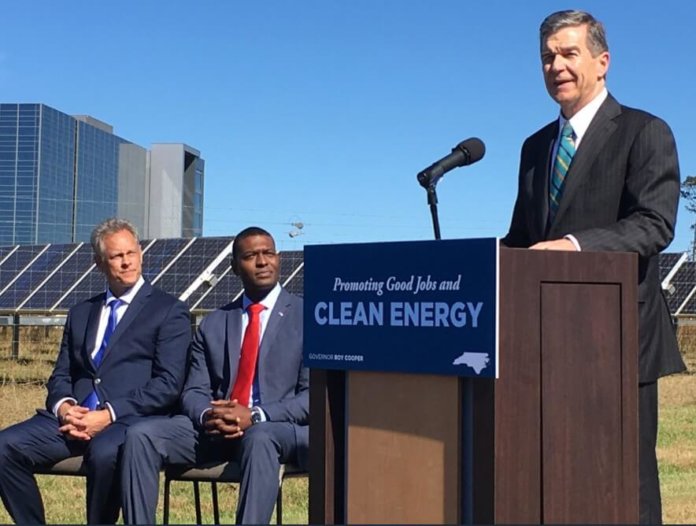Gov. Roy Cooper, D-N.C., has issued an executive order that he says highlights North Carolina’s commitment to fight climate change and transition to a clean energy economy.
On Monday, Cooper signed Executive Order No. 80 at SAS Institute’s solar farm in Cary. The order affirms North Carolina’s commitment to reducing statewide greenhouse-gas emissions to 40% below 2005 levels by 2025. Additionally, the order calls for an increase in registered, zero-emission vehicles (ZEVs) in North Carolina to at least 80,000 and a 40% reduction in energy consumption in state-owned buildings.
Notably, the order also creates the North Carolina Climate Change Interagency Council, which includes a representative from every state cabinet agency, to make changes happen.
The order also directs the following actions:
• The North Carolina Department of Environmental Quality (DEQ) will develop a North Carolina Clean Energy Plan to encourage the use of clean energy, including wind, solar, energy efficiency and energy storage.
• The North Carolina Department of Transportation will develop a plan to accelerate the use of ZEVs across state government. Cabinet agencies will prioritize the use of ZEVs for trips that can reasonably be made with a ZEV.
• DEQ will help cabinet agencies improve their energy efficiency and publicly report utility consumption.
• The North Carolina Department of Commerce will support the expansion of clean energy businesses and service providers, clean technology investment, and companies with a commitment to procuring renewable energy.
• All cabinet agencies will integrate climate mitigation and resiliency planning into their policies, programs and operations.
“A strong clean energy economy combats climate change while creating good jobs and a healthy environment,” said Cooper. “With historic storms lashing our state, we must combat climate change, make our state more resilient and lessen the impact of future natural disasters.”
The full executive order can be read here.




